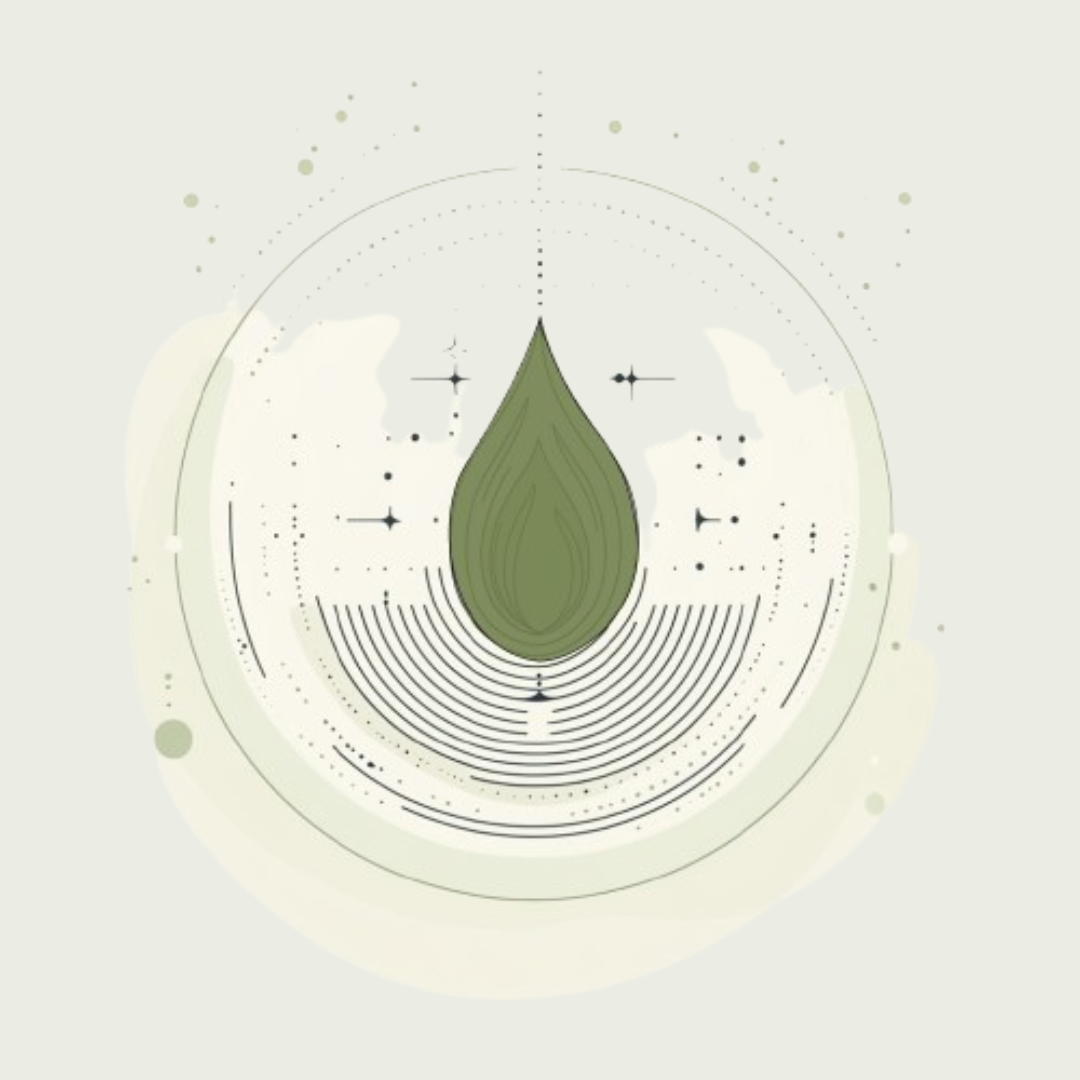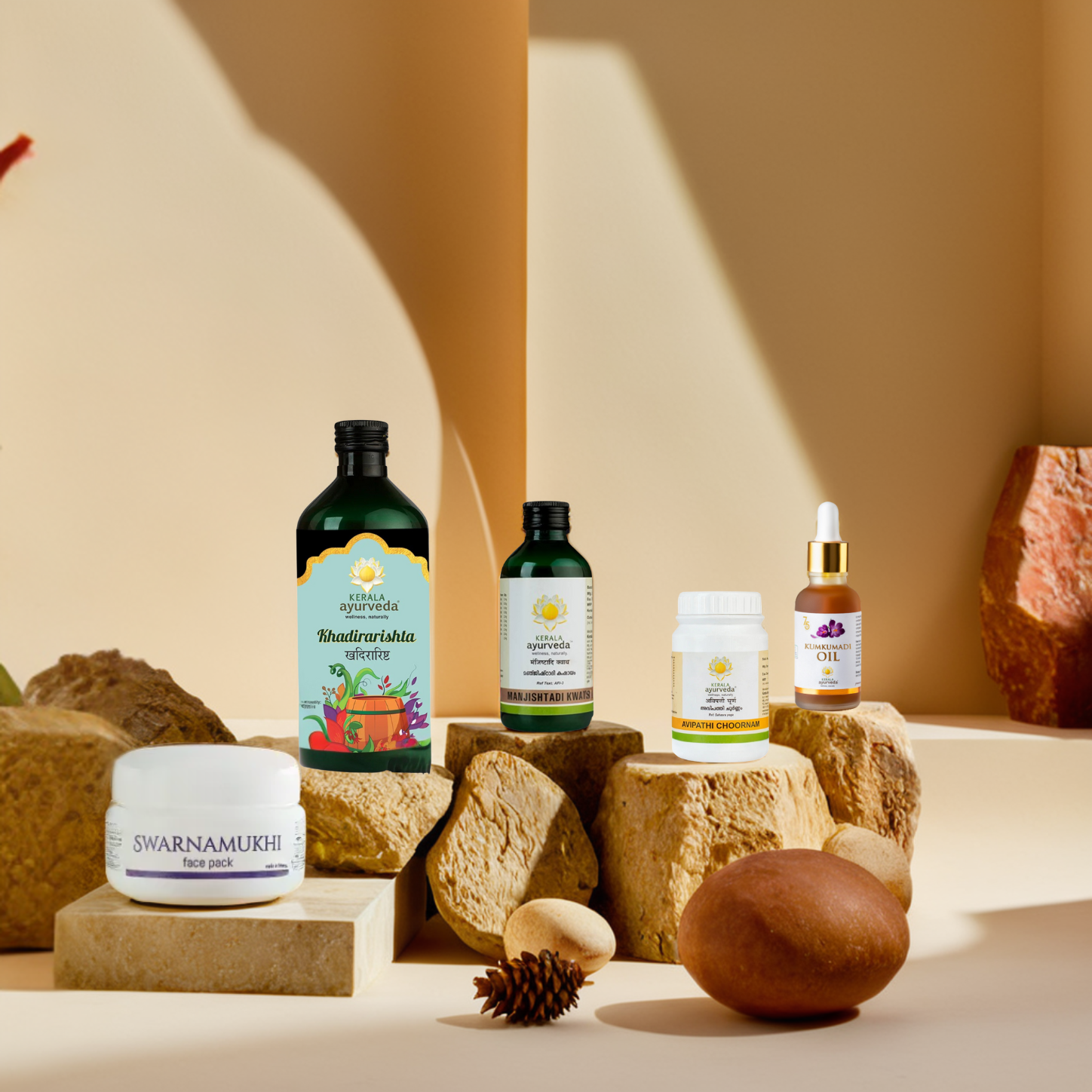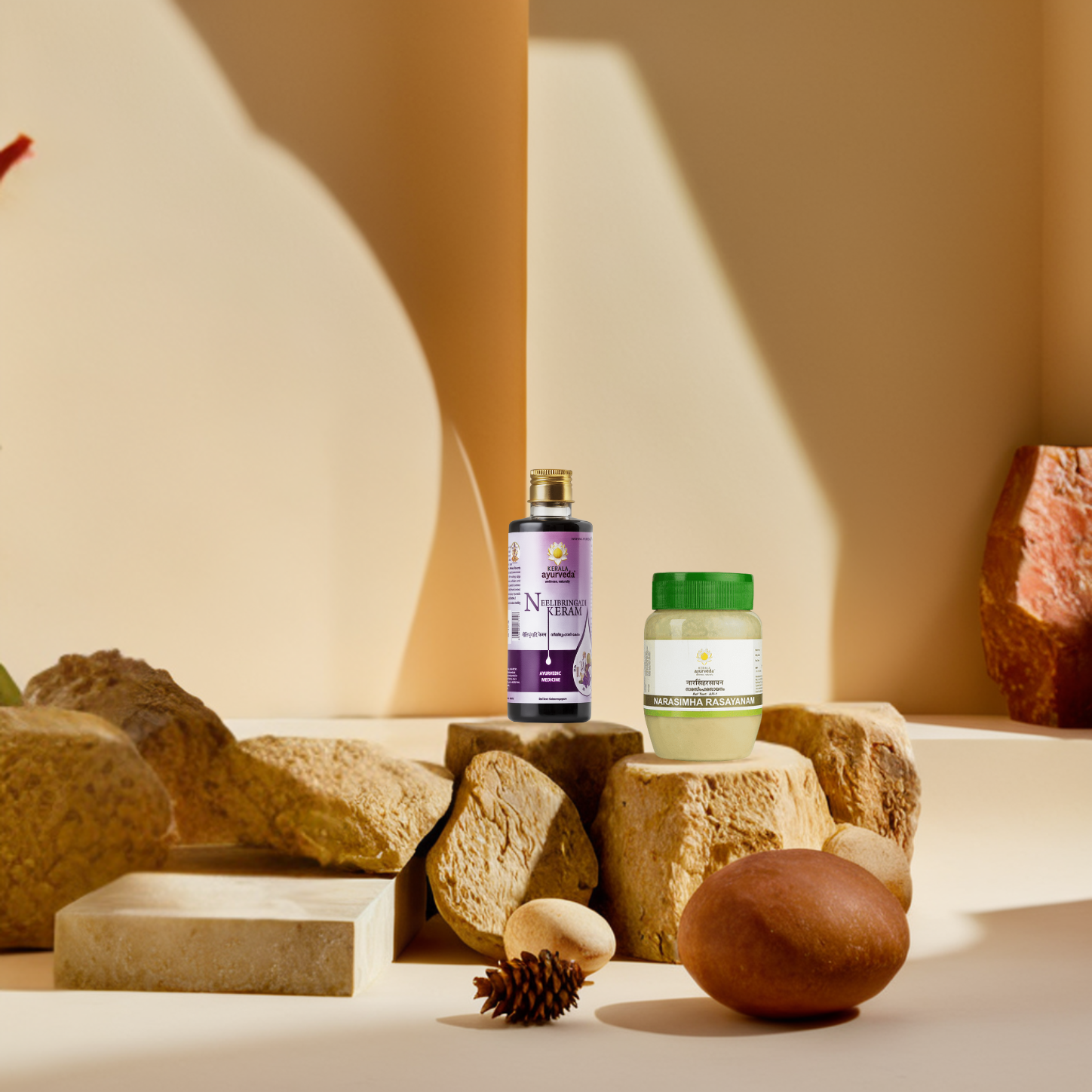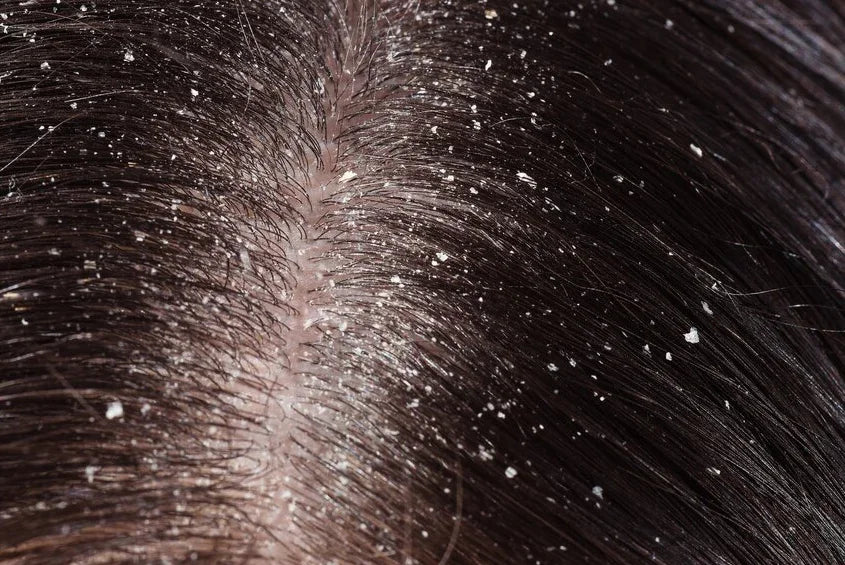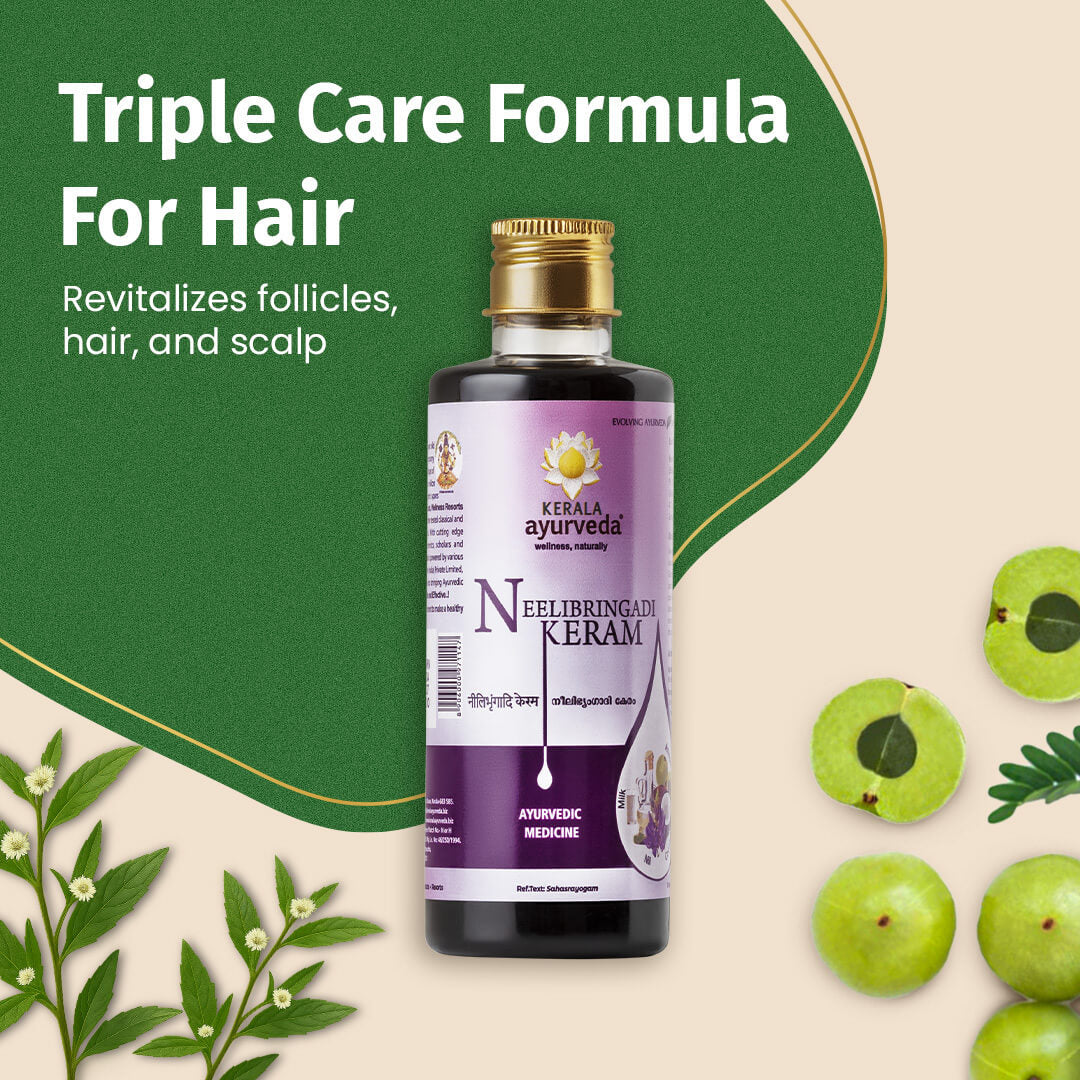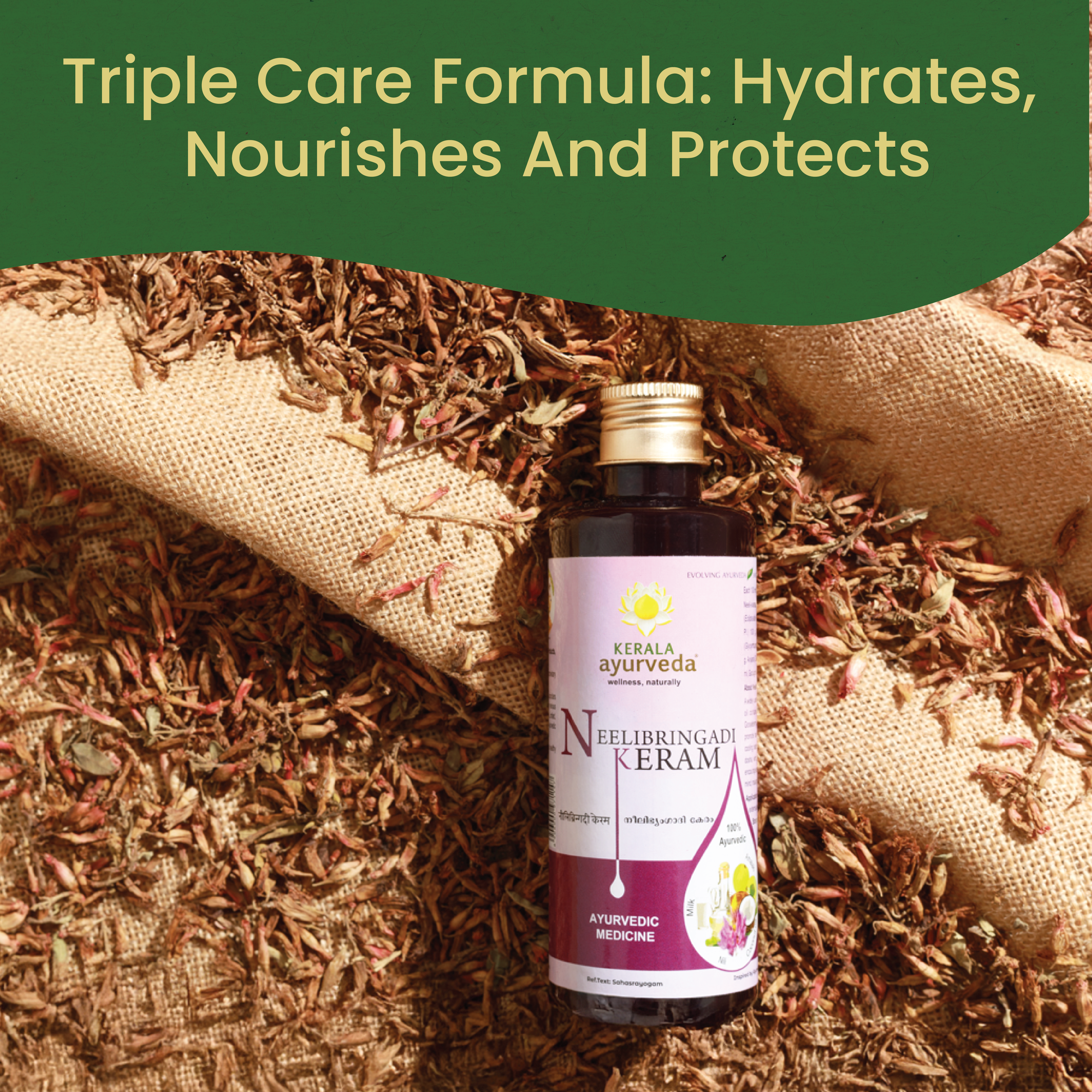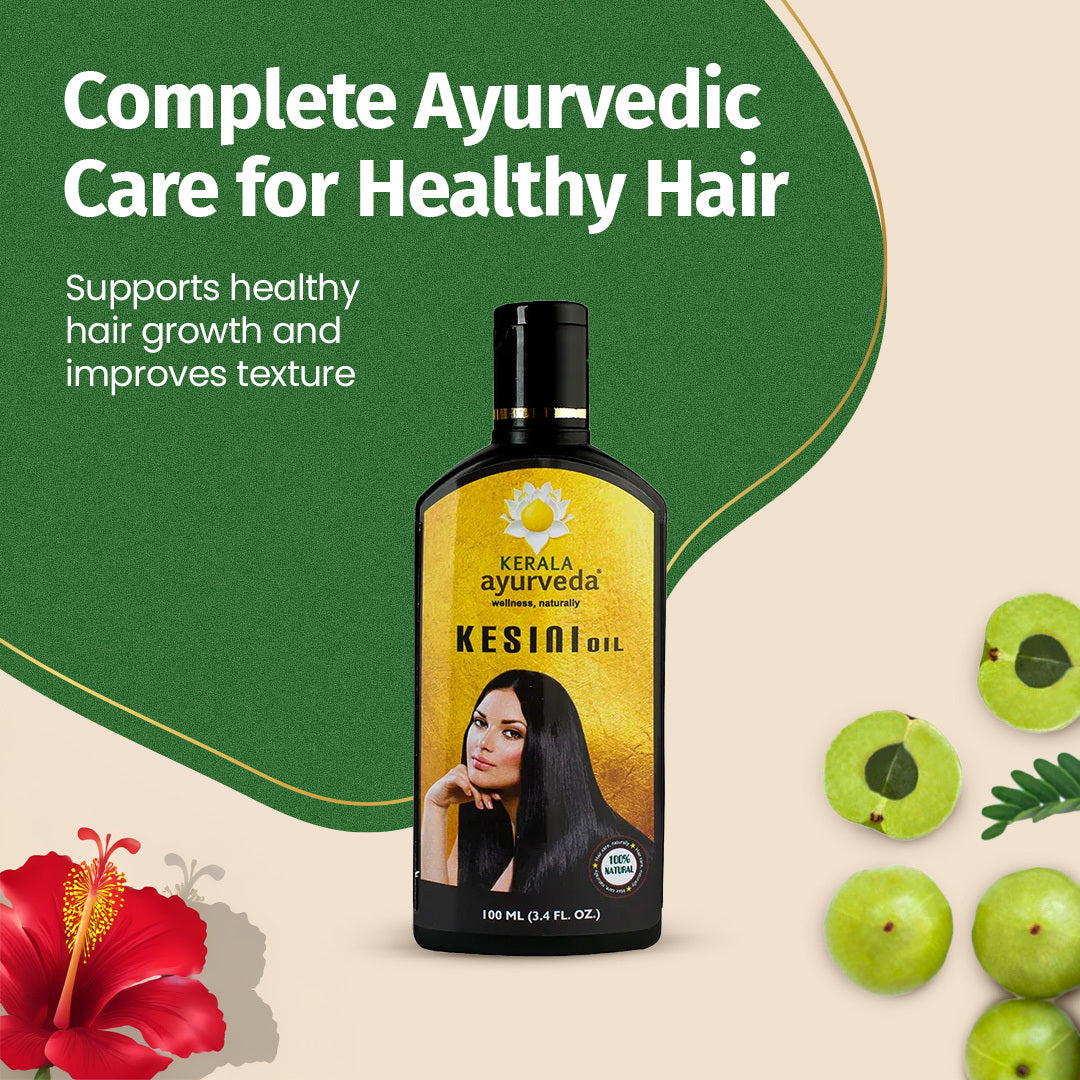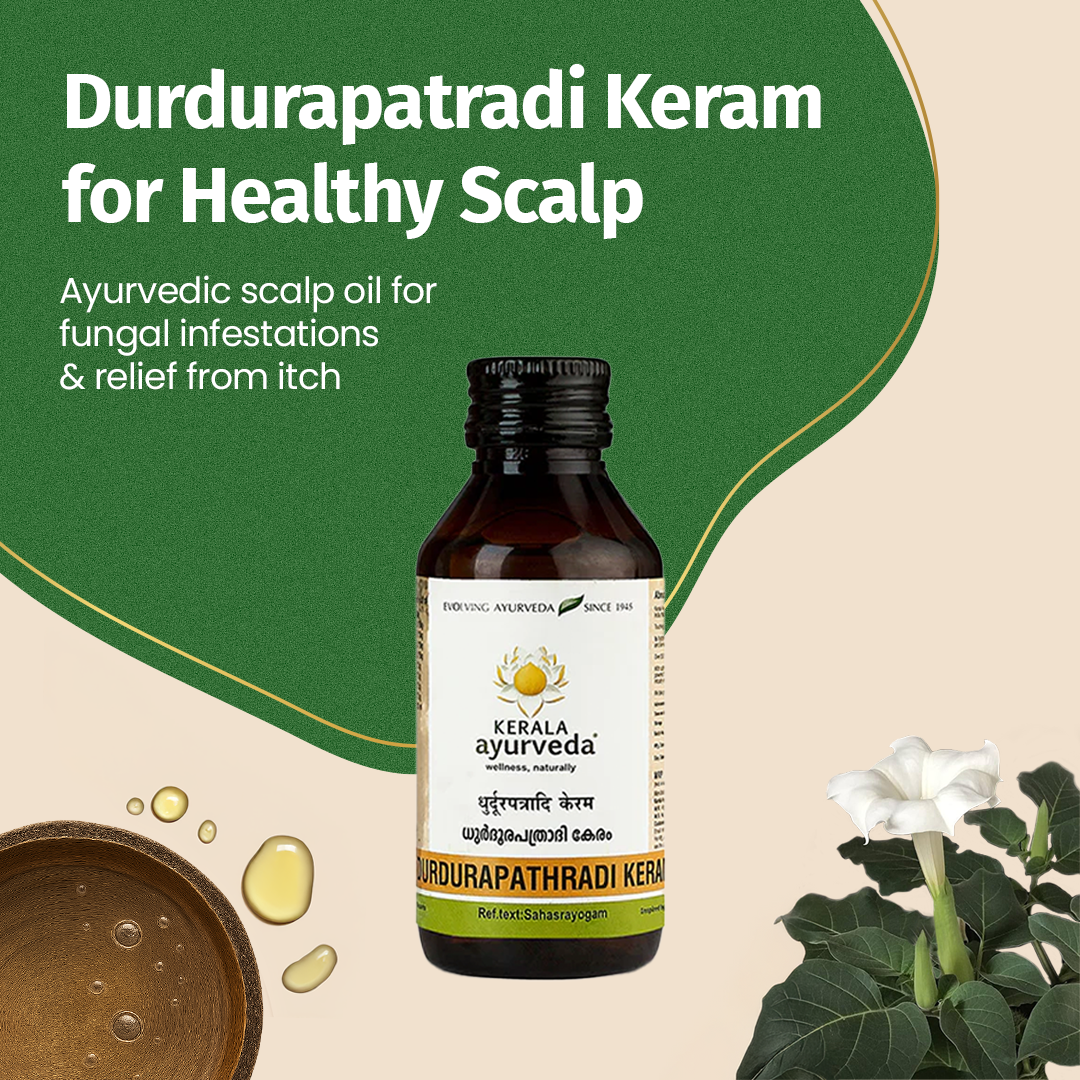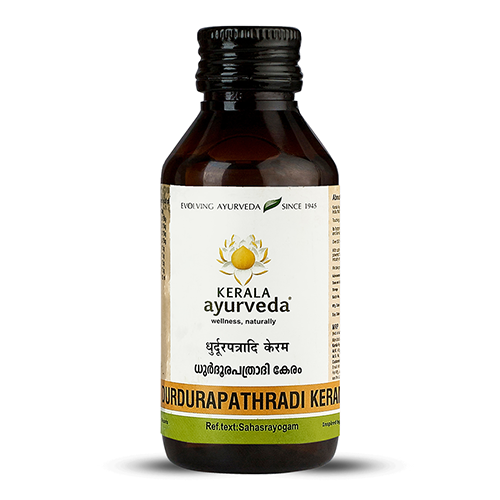Highlights
Itchy Sclap & Dandruff?
Are you noticing a lot of dandruff lately? – on your work desk, between the pages of your favorite book, on your shoulders, and everywhere you go. No rewards for guessing, but it’s all in your head.
Dandruff is a common scalp condition that generally occurs during winters. The scalp starts to flake off in response to the cold and dry weather. As the condition goes unnoticed like other little things, you may experience chronic itching and inflammation.
Reasons for dandruff
Dandruff may occur because of external factors or an underlying health condition. If your dandruff doesn’t go away with a couple of head washes and regular oiling, it's bad news.
However, don’t lose hope, as the cure is at hand.
Dandruff can be treated effectively with various home remedies. These remedies are easy to follow and have long-lasting results. More on these remedies later in this article. But first, let’s understand Ayurveda’s perspective on dandruff: why it occurs and how it can be treated.
Here are some causes of dandruff in scalp:
Irregular head washes
The oil, dirt, and sweat build-up in your scalp must be washed off at least thrice a week. Not washing your head regularly can worsen the situation and lead to other scalp infections, especially if your scalp is prone to dandruff.
Scalp Allergy
Knowingly or unknowingly, you come in contact with an allergen, and the next thing you know, you can’t help scratching your head. The allergen or irritant may be pollen from a wildflower, water scales, or a hair product you weren’t supposed to use.
Weather
During winter, the humidity in the air decreases, and so does the number of hair washes per week, causing a double whammy effect on our scalp. As the scalp becomes dry, it flakes off as dandruff. Cold and dry weather is one of the major causes of itchy scalp. If you have a naturally dry scalp, it is recommended to put oil in your hair daily to prevent dryness and its implications.
Ayurveda's Perspective
Why does it matter what Ayurveda says about dandruff and scalp infections?
A natural remedy works best when targeted at the root cause of the problem. Ayurveda’s perspective helps determine the underlying cause so that you can pursue the action for quick relief.
Making yourself aware of the underlying causes and corresponding treatments beforehand enables your body to respond to the treatment as intended – when you are mentally prepared to fight the ailment, the chances of the treatment working at the physical level may improve significantly.
That said, here’s what you must know before using natural remedies to treat itchy scalp and dandruff.
According to Ayurveda’s categorical study, dandruff is caused by an imbalance in all three doshas.
While vitiated Pitta-Vata doshas cause dry dandruff, the imbalance in Vata-Kapha doshas leads to excess sebum production, causing wet dandruff.
These dosha imbalances lead to toxin accumulation in the deep tissues of the scalp. As a natural response, your body tries to eliminate contaminated epidermal cells, resulting in dandruff and an itchy scalp.
Now that you know what causes dandruff in the first place, here are a few natural remedies that can help you find relief or prevent the condition altogether.
Natural Remedies for Dandruff & Itchy Scalp
People who are highly likely to have dandruff must take pre-emptive measures to control it and avoid occasional flare-ups. Here are some natural remedies for dandruff and flaky scalp:
Lemon Juice
Lemon has high citric acid content, which helps fight fungal infections and excess sebum production that cause wet dandruff and itchy scalp. This natural remedy prevents flare-ups and nips the dandruff problem at the bud.
- Mix two spoons of lemon juice with one spoon of honey
- Apply the mixture onto your scalp and along the length of your hair
- Leave it on for 5-10 minutes
- Rinse it off with lukewarm water
Note: Do not leave lemon juice on your scalp for more than the recommended duration, as doing so might lead to dry and frizzy hair.
Aloe Vera
Aloe vera has excellent antifungal properties and a soothing effect on the scalp, making it a popular itchy scalp home remedy. It also nourishes the hair shaft and restores its natural luster.
- Apply aloe vera gel directly onto your scalp.
- Leave it for a few minutes, and then wash it using herbal shampoo.
Baking Soda
Baking soda is an excellent pre-shampoo treatment to control dandruff and itching. It’s a mild exfoliator that helps remove dead skin from the scalp and eliminate fungal infections.
- Moist your hair and apply baking soda directly onto your scalp.
- Let it sit for a couple of minutes, then rinse it with herbal shampoo.
Tea Tree Oil
With its antimicrobial properties, Tea Tree oil can help control dandruff. It may also reduce scalp inflammation and itchiness, providing an overall soothing effect.
Tea Tree oil should be used after diluting it with carrier oil or water to avoid scalp irritation, especially if you have sensitive skin.
- Add a few drops of tea tree oil in water or coconut oil and use it to massage your scalp for a couple of minutes.
- Leave it on for 15 minutes.
- Wash your head with lukewarm water.
Apple Cider Vinegar
Apple cider vinegar has antifungal and pH-balancing properties, making it perfect for dandruff treatment and preventing scalp infections.
- Take equal parts of ACV and water to prepare a mixture in a spray bottle.
- Spritz your hair with this mixture, followed by a gentle massage.
- Wait for 5 minutes, and then wash your hair with shampoo.
Eat a Balanced Diet
Dandruff could result from a lack of nutrition. Ensure you eat a balanced diet rich in probiotics, omega-3 fatty acids, and vitamin C.
A balanced diet alongside topical remedies has a double action on dandruff internally and externally.
Ayurvedic Formulations for Faster Relief
For some people, the above-mentioned home remedies for dandruff and itchy scalp treatment may not work as expected, because the condition has worsened over time or there’s an underlying health concern that needs to be addressed.
In such cases, using herbal formulations may prove beneficial.
Here are some of the best herbal formulations used in the Ayurvedic treatment for dandruff.
Neelibringadi Keram
Natural ingredients and convenient to use, Neelibringadi Keram is fortified with Bhringaraj, Karnasphota, and Amla, blended in a coconut oil base. It helps promote thick, lustrous hair & delays premature greying. You can also use this oil to treat dandruff and soothe scalp irritation caused by fungal infections.
Kesini Oil
Kesini Oil has Castor and Coconut oil as a base, with a unique blend of herbs that promotes hair growth and increases hair volume. Also, using Kesini oil can help you find relief if you have dandruff.
Durdurapathradi Keram
Controls fungal infection, dandruff and itchiness. Massaging your scalp with Durdurapathradi Keram helps break dandruff loose so you can get it out of your scalp in a single wash. Using this oil for the recommended duration, which is two weeks, can help treat fungal infections and prevent dandruff and flaky scalp.
Conclusion
Dandruff and other scalp conditions can crop up overnight, but that shouldn’t scare you because the condition can be cured using home remedies and herbal oils.
You can tackle the problem in stages.
The first step is to use home remedies for a couple of days. Try different combinations of home remedies and see if the situation improves. If you don’t see any positive results, consider using herbal oils offered by Kerala Ayurveda for fast action.
If your dandruff doesn’t go away despite using home remedies and herbal oils, consult with your dermatologist or physician, as there might be an underlying condition that went unnoticed.
Key Takeaways
- Dandruff is a reasonably common scalp condition that may occur because of internal and external factors.
- Internal factors may include lack of nutrition or fungal infections.
- External factors may include shower water quality, sweating, and changing weather.
- The dandruff problem can be nipped in the initial stages using home remedies, such as lemon juice, aloe vera, apple cider vinegar, baking soda, and more.
- You may also use herbal oils by Kerala Ayurveda to fight dandruff and other scalp conditions effectively.


